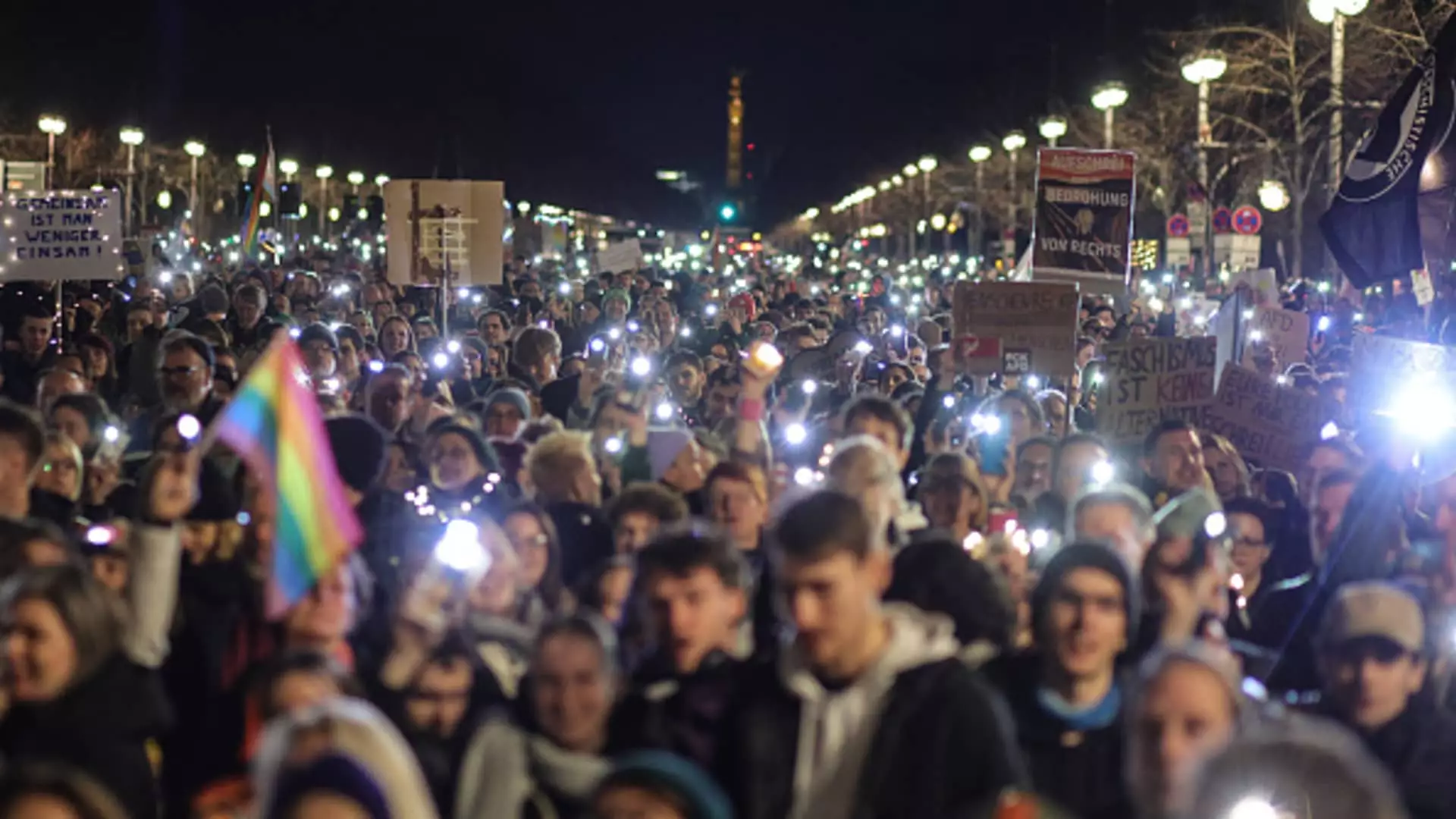On the heels of the impending general election scheduled for February 23, Germany has witnessed significant unrest as tens of thousands of protesters took to the streets in major cities like Berlin and Cologne. Their unyielding message: a stark denouncement of the far-right Alternative for Germany (AfD) party, known for its anti-immigrant stance. The Brandenburg Gate in Berlin became a vibrant hub for the demonstration, echoing with anti-fascist slogans, the sound of whistles, and colorful banners that denounced the AfD. This outpouring of dissent is not only a response to domestic political dynamics but also serves as a broader warning against rising far-right sentiments across Europe and the influence of figures like U.S. President Donald Trump.
Among the voices rallying against the rise of far-right politics was Luisa Neubauer, a prominent figure from the Fridays for Future climate movement. Neubauer’s intersection of climate advocacy and anti-racist sentiment resonated deeply with the crowd, estimated to be around 35,000 in Berlin alone. She articulated a powerful connection between ecological responsibility and human rights, urging the audience to recognize the lethal implications of political rhetoric that undermines both the environment and societal inclusivity. Such sentiments reflect a growing awareness among activists that the battle against climate change cannot be divorced from the fight against racism and xenophobia.
The protests emerged in the wake of the collapse of Chancellor Olaf Scholz’s coalition government late last year, a failure rooted in disputes over the country’s economic renewal amidst stagnation. During this politically charged atmosphere, the AfD initiated its election campaign in Halle, featuring Alice Weidel, their candidate for chancellor, who managed to gather around 4,500 supporters. Weidel’s growing notoriety, compounded by endorsements from controversial figures like Elon Musk, highlights the complexities and polarizing nature of contemporary politics in Germany. Musk’s support has incited uproar among various segments of the populace, further deepening the trenches of the national debate.
The traditional political landscape is fraught with tension as mainstream political parties have resolutely refused to collaborate with the AfD. The center-right Union bloc, currently leading in polls, faces a precarious balancing act by proposing more stringent immigration reforms while attempting to distance itself from the consequences of working alongside the far-right. Friedrich Merz, the bloc’s candidate for chancellor, has pledged to reinforce border controls and increase deportations, risking accusations of breaching long-standing commitments against any alliances with the AfD. This strategic move could alienate moderate voters who remain wary of the far-right’s ascendance.
As Germany navigates this turbulent political period, the implications of the AfD’s rise extend beyond its borders, encapsulating a broader European trend where far-right ideologies are gaining traction. The protests signify not only a reaction to these parties but also an attempt to cultivate solidarity among those who champion democracy and human rights. With the election around the corner, the German populace stands at a pivotal crossroads, where their choices could shape the future trajectory of both domestic policy and the European political landscape as a whole. It is crucial for citizens and activists alike to remain vigilant and engaged in the fight against the escalation of far-right politics and the radical ideologies that threaten the fabric of society.


Leave a Reply